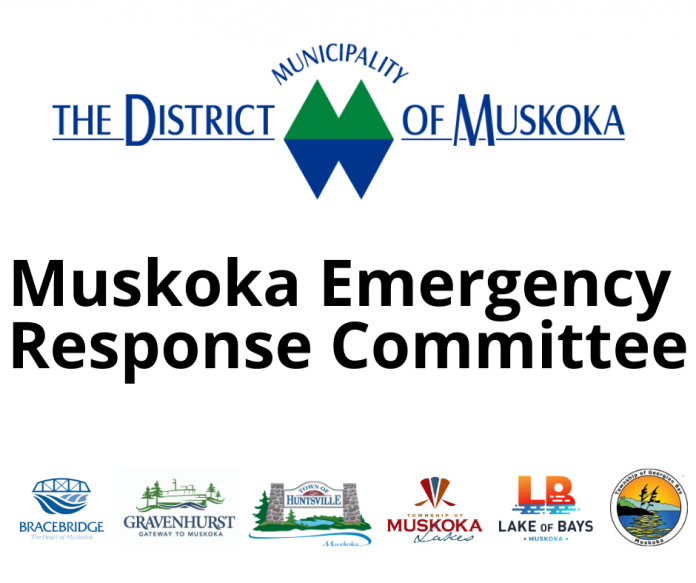Seasonal residents may be choosing to spend more time at their cottage or even reside in it full time this winter due to COVID-19. Residents should take extra precautions if they’re occupying seasonal homes during the winter months. The Muskoka Emergency Response Committee (MERC) is comprised of the area’s six municipalities and the District of Muskoka. MERC collaborates with the local Area Municipalities and First Nation Communities to protect the health and safety of residents and visitors to Muskoka in times of emergency.
To help ensure your safety and prepare for the winter season ahead, the MERC would like to share the following information and resources:
Plan ahead and be prepare for extreme winter weather conditions:
Winter storm events in Muskoka are common and can make it difficult or dangerous to leave your home for extended periods of time. Severe winter weather can cause power outages, interrupt communication, cause road closures and make water access-only properties a challenge to reach. People living in rural locations may need to be self-sufficient for long periods of time. A good supply of essentials including food, water and medications are critically important.
To be prepared, residents should prepare a 72-hour emergency kit. This should include a supply of food and water, as well as an adequate supply of medications you may need. More information on emergency planning and 72-hour kits is available on the Ministry of Ontario’s emergency preparedness site. Residents are also encouraged to research and create a self-rescue plan as well as finding emergency transportation options in their area.
Make plans for road maintenance to ensure access for emergency vehicles:
Access to many seasonal vacation homes can be severely limited during the winter months and many seasonal homes are located on private roads or accessed by long private driveways. These roads and driveways are not maintained by the town / township or District and are typically not accessible in the winter months, unless maintained by a private contractor.
Response times can be longer during the winter months due to winter road conditions and challenges related to water access only properties. Private roads and lane ways need to be maintained during the winter months in order to ensure access for emergency vehicles. To help improve response times and ensure access, private roads and driveways should be:
- cleared to provide wide enough access to accommodate large emergency vehicles as Fire trucks and Ambulances require more clearance than a typical car or truck.
- salted or sanded to prevent dangerous ice conditions,
- clear of drifts during windy conditions.
NOTE: 911 signs should be kept visible at all times to prevent response delays. Please ensure that you know your 911 address in case you need to call for help.
Use extra caution when heating with fuel-fired appliances:
Extra care should be taken when dealing with fuel-fired appliances, including fireplaces and wood stoves, as well as natural gas or propane furnaces, and other fuel-fired appliances such as kerosene heaters.
- Wood-burning stoves and fireplaces should be professionally inspected annually, and the chimneys cleaned regularly. Ashes should be kept outside and away from the home, in a metal container.
- Exhaust vents for gas furnaces and water heaters need to be kept clear of snow accumulations. A blocked exhaust vent can cause dangerous build-up of carbon monoxide in the home. Fuel-fired heaters should only be used in properly ventilated areas.
- Generators should never be operated inside a building, as this can cause an unsafe build-up of carbon monoxide.
- Residents should ensure that the home has the correct number of smoke alarms and carbon monoxide alarms, and that they are properly located, regularly tested and properly maintained. Carbon monoxide alarms are required outside all sleeping areas if the home has a fuel-burning appliance, a fireplace or an attached garage. Please call your local fire department if you have any questions or concerns about your alarms
More winter fire safety tips are available from the Ontario Association of Fire Chiefs.
Where can you get more information or resources about emergency planning?
Town of Bracebridge 705-645-5264
Town of Gravenhurst 705-687-3414 Ext. 255
Town of Huntsville 705-789-5201
Township of Georgian Bay 705-538-2337 x248
Township of Lake of Bays 705-635-2272
Township of Muskoka Lakes 705-765-3156








